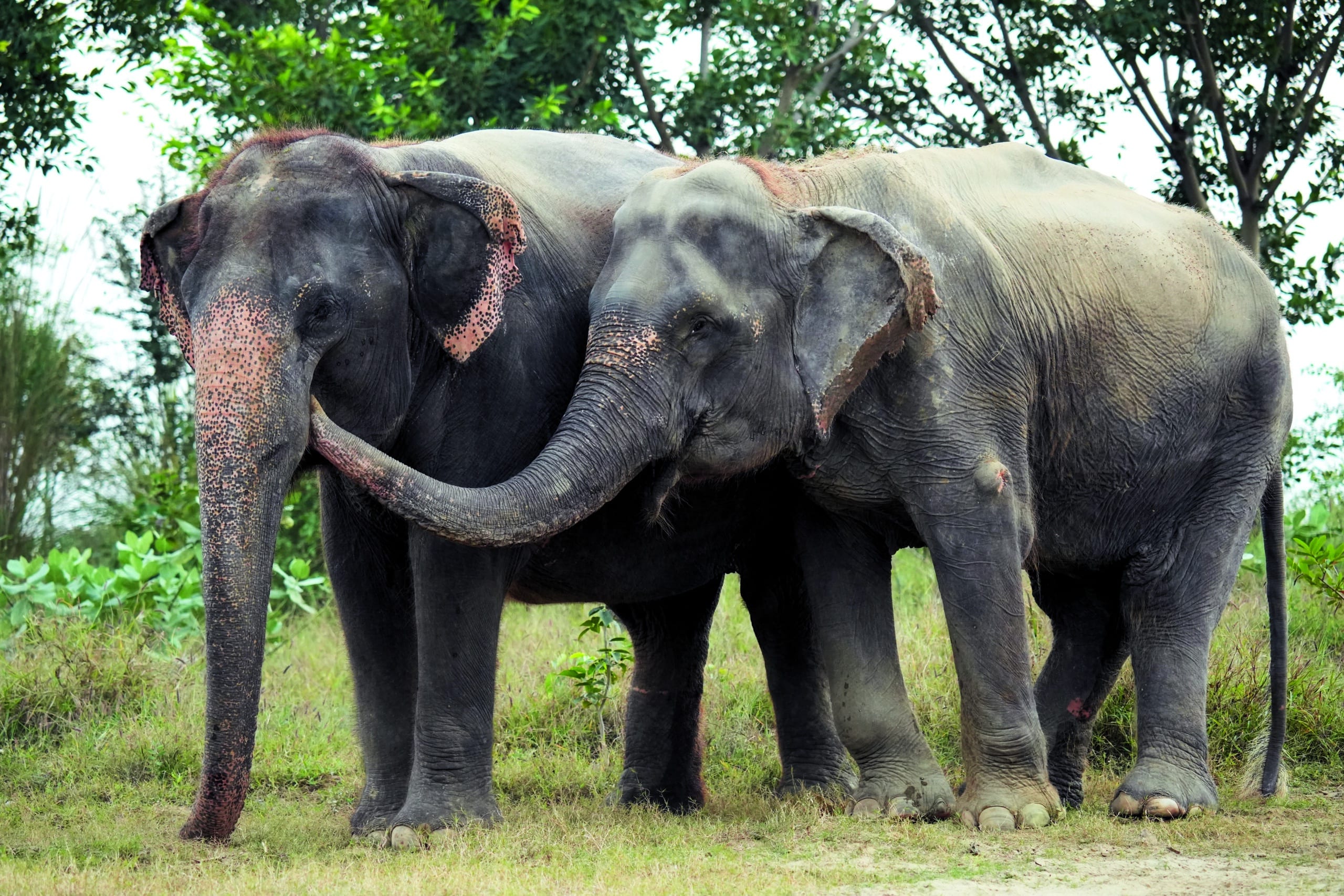You might remember Kalpana—I am happy to report that this year she celebrates her fifth rescue anniversary at Wildlife SOS. Formerly exploited and abused as a ‘begging’ elephant in Uttar Pradesh, Kalpana was rescued in 2019 and brought to the Wildlife SOS Elephant Hospital Campus (EHC) in Mathura for comprehensive...
Conservative estimates claim that more than 30 million dogs are taken from streets, stolen from loving homes or bred in farms for the dog meat trade. And they live unbelievably tortured existences: kept in unhygienic cramped cages, trucked over vast distances without food or water, only to face an inhumane slaughtering.
Eating dog is unthinkable for most people but sadly does take place in a handful of Asian countries. Dogs that fall victim to the dog meat trade endure unimaginable suffering on farms, during transport and being slaughtered. HSI campaigns in South Korea, China, India, Vietnam, Laos, Thailand and the Philippines and we are evaluating a campaign in Indonesia.
Around 2.5 million dogs are killed annually for the dog meat trade in South Korea, which is the only country in the world with established dog breeding farms. Image: Jean Chung/For HSI
It’s important to note that the vast majority of people in these countries do not participate or condone eating of dog meat and public sentiment against the trade is growing strongly. Mindful of this, HSI has prioritised ending this vicious trade and has local teams helping re-establish a bond forged some 30,000 years ago between humans and dogs.
Around 2.5 million dogs are killed annually for the dog meat trade in South Korea, which is the only country in the world with established dog breeding farms. The conditions for the dogs are nothing short of cruel, with the animals confined to unclean cages, put under stress and sustaining high levels of injuries, abnormal behaviours and even death. HSI with the help of local organisations is making progress on the issue. Just weeks ago we shut down a seventh dog meat farm in the country, with the dogs being relocated to a rescue centre in Chicago where they will stay until they are rehomed to loving families, rescued from the cruel fate that only weeks ago stood before them.
A first-hand account of walking into the horrific dog meat farm was captured by Adam Parascandola, Humane Society International’s Director of Animal Protection and Crisis Response.
“Entering the darkness I was met by a gut wrenching miasma of faeces and urine. With the ammonia burning our throats we stood amid a cacophony of desperate barking, able only to discern eyes forlornly peering back. Some dogs cowered, others hid from our approach as any loving contact was alien. Fifty-five dogs, including 5 puppies, were ‘living’ without daylight or fresh air, forced to breath in from their fetid surroundings. Destined to be sold for a few dollars and then killed, we found retrievers, short haired pointers, pugs, a little corgi chihuahua cross, and a maltese caged alone suffering from an electric collar so tight it dug into his flesh. Amazingly, another mangy one locked up alone managed a small wag when I spoke to him. But this story has a happy ending: all were flown to the US and adopted into loving forever-homes, escaping the misery that had haunted them since birth. Thrilled to be part of this rescue, I am kept awake worrying about the millions still feeding this horrific trade—I must keep returning until the last cage is unlocked.”
It’s a grim picture, but one that has a glimmer of hope.
South Korea just last year shut down its biggest dog meat market which sells more than 80,000 dogs, dead or alive, every year. The Moran market in Seongnam accounts for about a third of the country’s annual dog meat consumption. Our focussing of the global spotlight has had great impact and during the forthcoming 2018 Winter Olympics in South Korea, we will capitalise on the media opportunities it brings. Getting the eyes of the world to see more than just sport, we are already engaging with Olympic athletes, sponsors, diplomats and politicians in an awareness campaign to expose the ugliness of the trade and build overwhelming public support against it.
Following our recent successful interventions, HSI has determined that many people in this trade are eager to quit and we are supporting their transition to better livelihoods. Since we began in Korea we have witnessed a 50?cline in the market.
Most of the dog meat trade is in China despite polling showing a strong majority of Chinese supporting its banning. Ironically, China’s pet ownership is about 30 million, many of which are stolen to supply the trade. At least 10,000 to 15,000 defenceless animals perish in the notorious Yulin Dog Meat Festival held yearly since 2009. The dogs are kept in deplorable conditions, many enduring journeys for days to then be inhumanely slaughtered at the festival. Not only is the mistreatment and consumption of dogs bad for these animals, but it poses a massive risk for human health. The World Health Organisation has linked the dog meat trade to diseases such as cholera and even rabies, a disease in which China has the second highest number of cases worldwide.
5 million dogs are also eaten in Vietnam annually with illegal supply from Thailand, Cambodia and Laos. We have seen enormous success linking rabies with the dog meat trade as the risk of transmission in these countries poses a real threat. We recently brokered a meeting with officials from several countries which has seen stronger laws and more diligent policing.
Just weeks ago we shut down a seventh dog meat farm in South Korea, with the dogs being relocated to a rescue centre in Chicago. Image: Jean Chung/For HSI
Efforts are also underway in India, Indonesia and the Philippines, all countries where law prohibits killing or eating of dog meat. It’s enforcement that is the key to a winning strategy here.
Our fight against the global dog meat trade also got an enormous lift with Taiwan’s legislature amending its anti-cruelty law just a few weeks ago and banning the trade and the consumption of our best friends. Taiwan becomes the latest nation in the region to make an emphatic statement and to curb the trade.
As an NGO, HSI has limited resources and we are up against the strong trade and political ties between these Asian countries. And our campaign is also about changing cultural views of dogs, with some facets of society holding on to these unacceptable ‘traditional’ practices. However, we continue saving every single animal possible. It’s a massive job but we have the backing of millions of animal lovers.
Our campaign may take years to claim complete victory but imagine your satisfaction in being a vital part of it—you can donate today to ensure we can continue this vital work to confine dog meat farms to history.





